
open-health
OpenHealth, AI Health Assistant | Powered by Your Data
Stars: 3152
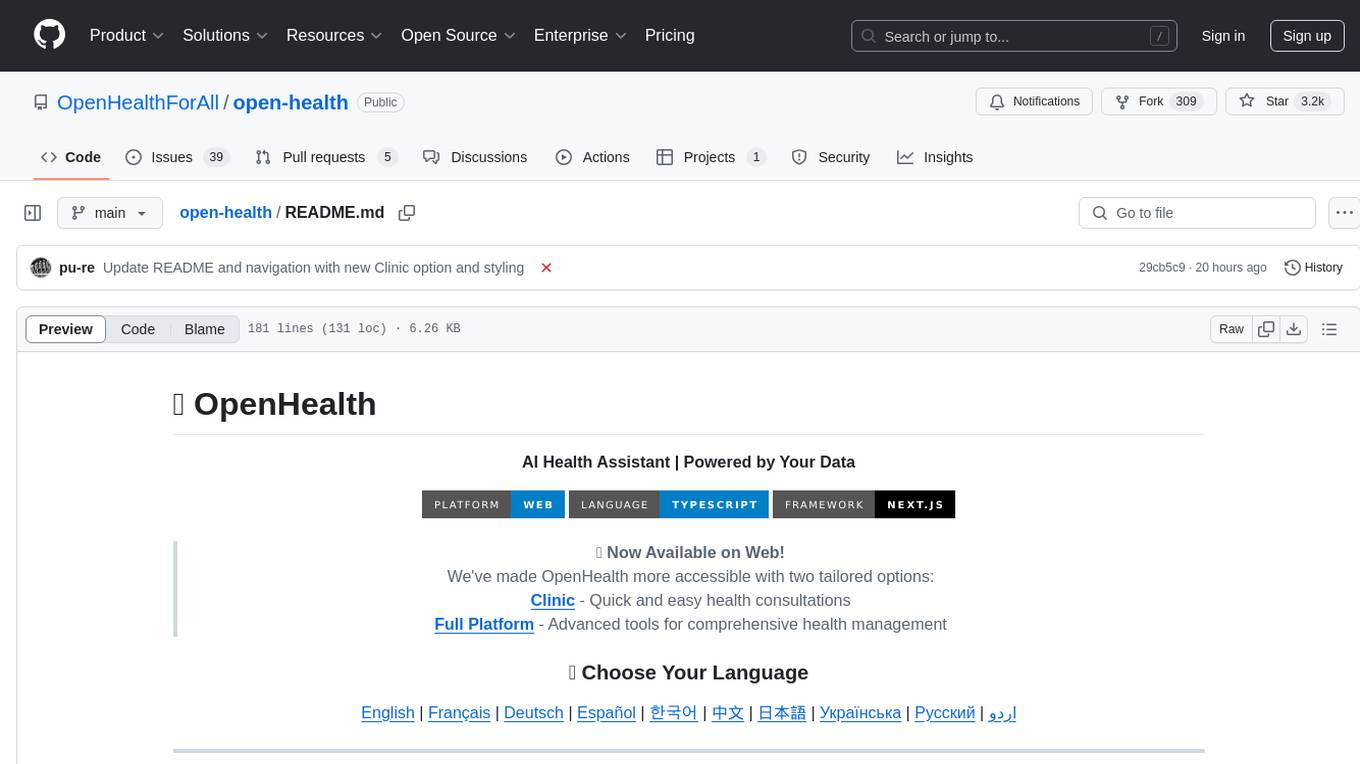
OpenHealth is an AI health assistant that helps users manage their health data by leveraging AI and personal health information. It allows users to consolidate health data, parse it smartly, and engage in contextual conversations with GPT-powered AI. The tool supports various data sources like blood test results, health checkup data, personal physical information, family history, and symptoms. OpenHealth aims to empower users to take control of their health by combining data and intelligence for actionable health management.
README:
AI Health Assistant | Powered by Your Data
📢 Now Available on Web!
We've made OpenHealth more accessible with two tailored options:
Clinic - Quick and easy health consultations
Full Platform - Advanced tools for comprehensive health management
English | Français | Deutsch | Español | 한국어 | 中文 | 日本語 | Українська | Русский | اردو
OpenHealth helps you take charge of your health data. By leveraging AI and your personal health information, OpenHealth provides a private assistant that helps you better understand and manage your health. You can run it completely locally for maximum privacy.
Core Features
- 📊 Centralized Health Data Input: Easily consolidate all your health data in one place.
- 🛠️ Smart Parsing: Automatically parses your health data and generates structured data files.
- 🤝 Contextual Conversations: Use the structured data as context for personalized interactions with GPT-powered AI.
| Data Sources You Can Add | Supported Language Models |
|---|---|
|
• Blood Test Results • Health Checkup Data • Personal Physical Information • Family History • Symptoms |
• LLaMA • DeepSeek-V3 • GPT • Claude • Gemini |
- 💡 Your health is your responsibility.
- ✅ True health management combines your data + intelligence, turning insights into actionable plans.
- 🧠 AI acts as an unbiased tool to guide and support you in managing your long-term health effectively.
graph LR
subgraph Health Data Sources
A1[Clinical Records<br>Blood Tests/Diagnoses/<br>Prescriptions/Imaging]
A2[Health Platforms<br>Apple Health/Google Fit]
A3[Wearable Devices<br>Oura/Whoop/Garmin]
A4[Personal Records<br>Diet/Symptoms/<br>Family History]
end
subgraph Data Processing
B1[Data Parser & Standardization]
B2[Unified Health Data Format]
end
subgraph AI Integration
C1[LLM Processing<br>Commercial & Local Models]
C2[Interaction Methods<br>RAG/Cache/Agents]
end
A1 & A2 & A3 & A4 --> B1
B1 --> B2
B2 --> C1
C1 --> C2
style A1 fill:#e6b3cc,stroke:#cc6699,stroke-width:2px,color:#000
style A2 fill:#b3d9ff,stroke:#3399ff,stroke-width:2px,color:#000
style A3 fill:#c2d6d6,stroke:#669999,stroke-width:2px,color:#000
style A4 fill:#d9c3e6,stroke:#9966cc,stroke-width:2px,color:#000
style B1 fill:#c6ecd9,stroke:#66b399,stroke-width:2px,color:#000
style B2 fill:#c6ecd9,stroke:#66b399,stroke-width:2px,color:#000
style C1 fill:#ffe6cc,stroke:#ff9933,stroke-width:2px,color:#000
style C2 fill:#ffe6cc,stroke:#ff9933,stroke-width:2px,color:#000
classDef default color:#000Note: The data parsing functionality is currently implemented in a separate Python server and is planned to be migrated to TypeScript in the future.
Installation Instructions
-
Clone the Repository:
git clone https://github.com/OpenHealthForAll/open-health.git cd open-health -
Setup and Run:
# Copy environment file cp .env.example .env # Start the application using Docker/Podman Compose docker/podman compose --env-file .env up
For existing users, use:
# Generate ENCRYPTION_KEY for .env file: # Run the command below and add the output to ENCRYPTION_KEY in .env echo $(head -c 32 /dev/urandom | base64) # Rebuild and start the application docker/podman compose --env-file .env up --build
to rebuild the image. Run this also if you make any modifications to the .env file.
-
Access OpenHealth: Open your browser and navigate to
http://localhost:3000to begin using OpenHealth.
Note: The system consists of two main components: parsing and LLM. For parsing, you can use docling for full local execution, while the LLM component can run fully locally using Ollama.
Note: If you're using Ollama with Docker, make sure to set the Ollama API endpoint to:
http://docker.for.mac.localhost:11434on a Mac orhttp://host.docker.internal:11434on Windows.
For Tasks:
Click tags to check more tools for each tasksFor Jobs:
Alternative AI tools for open-health
Similar Open Source Tools

open-health
OpenHealth is an AI health assistant that helps users manage their health data by leveraging AI and personal health information. It allows users to consolidate health data, parse it smartly, and engage in contextual conversations with GPT-powered AI. The tool supports various data sources like blood test results, health checkup data, personal physical information, family history, and symptoms. OpenHealth aims to empower users to take control of their health by combining data and intelligence for actionable health management.
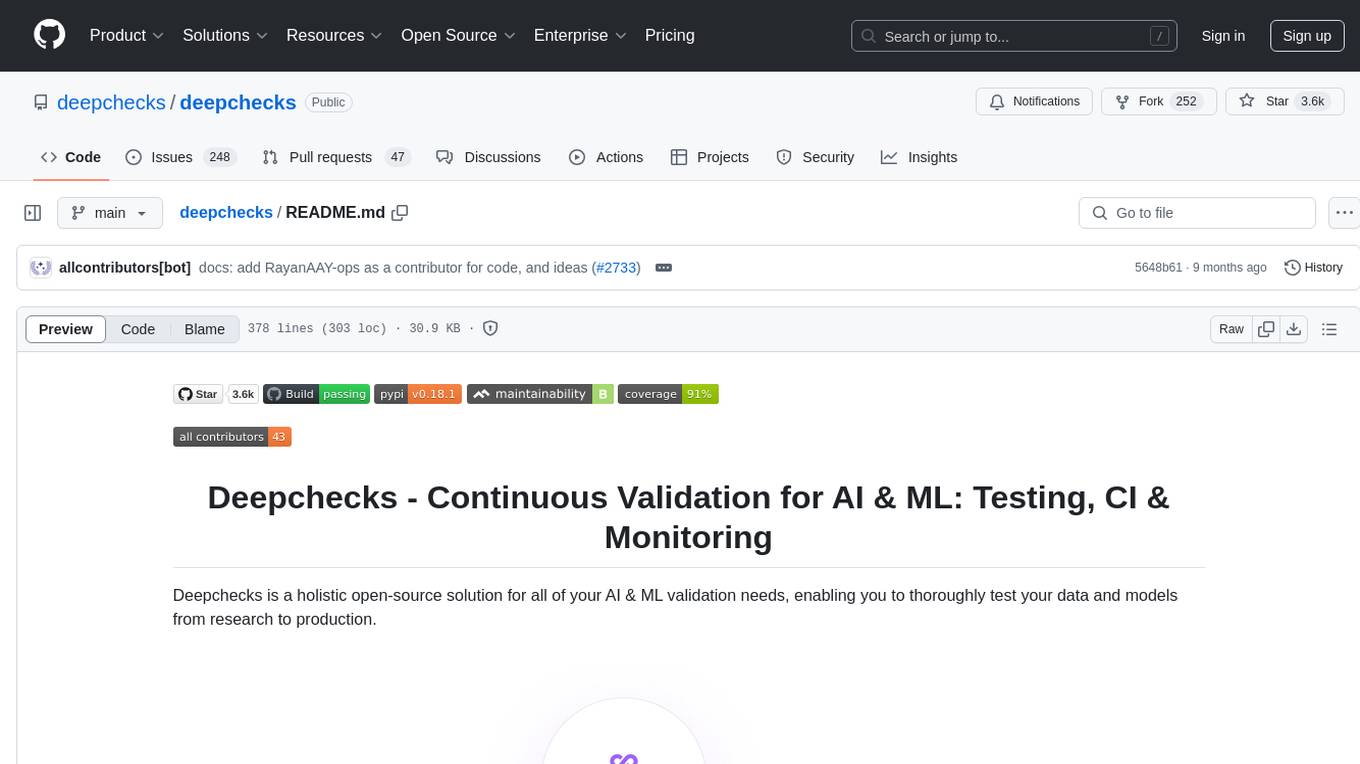
deepchecks
Deepchecks is a holistic open-source solution for AI & ML validation needs, enabling thorough testing of data and models from research to production. It includes components for testing, CI & testing management, and monitoring. Users can install and use Deepchecks for testing and monitoring their AI models, with customizable checks and suites for tabular, NLP, and computer vision data. The tool provides visual reports, pythonic/json output for processing, and a dynamic UI for collaboration and monitoring. Deepchecks is open source, with premium features available under a commercial license for monitoring components.
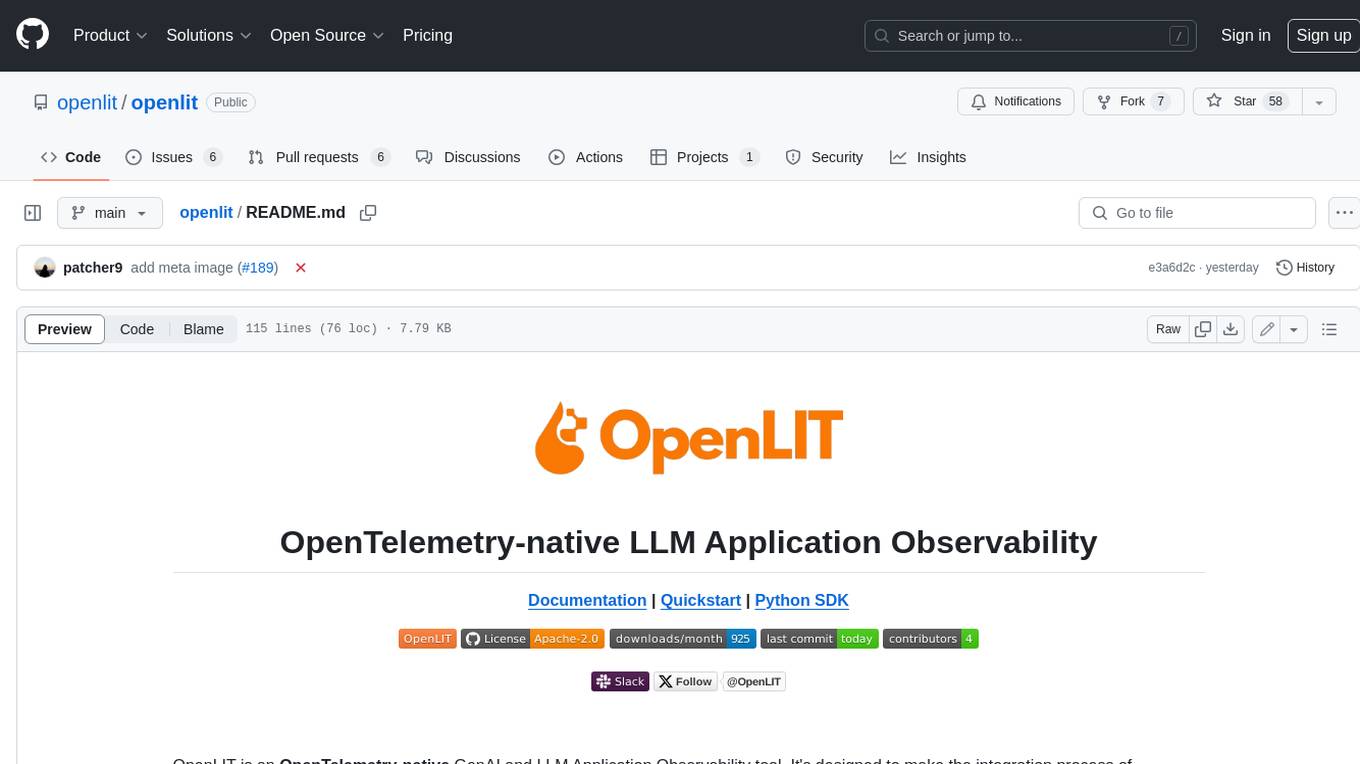
openlit
OpenLIT is an OpenTelemetry-native GenAI and LLM Application Observability tool. It's designed to make the integration process of observability into GenAI projects as easy as pie – literally, with just **a single line of code**. Whether you're working with popular LLM Libraries such as OpenAI and HuggingFace or leveraging vector databases like ChromaDB, OpenLIT ensures your applications are monitored seamlessly, providing critical insights to improve performance and reliability.
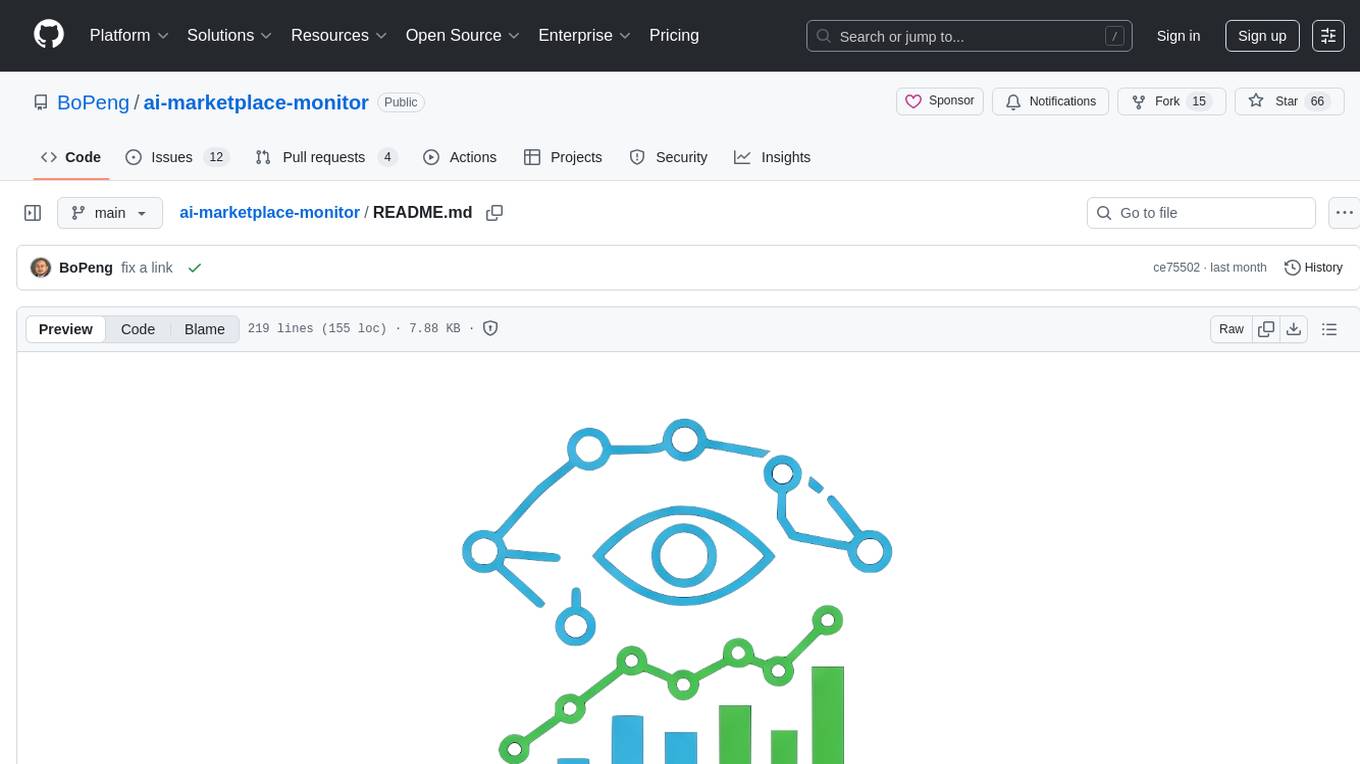
ai-marketplace-monitor
An intelligent tool that monitors Facebook Marketplace listings using AI to help users find the best deals. It provides instant notifications when items matching specific criteria are posted, along with AI-powered analysis of each listing. The tool offers smart search capabilities, AI-powered listing evaluation and recommendations, various notification options, support for multiple locations, and customizable search parameters. Users can configure the tool to search for specific products, filter by price and location, and receive notifications through different channels. The tool also supports AI service providers and offers a self-hosted model option.
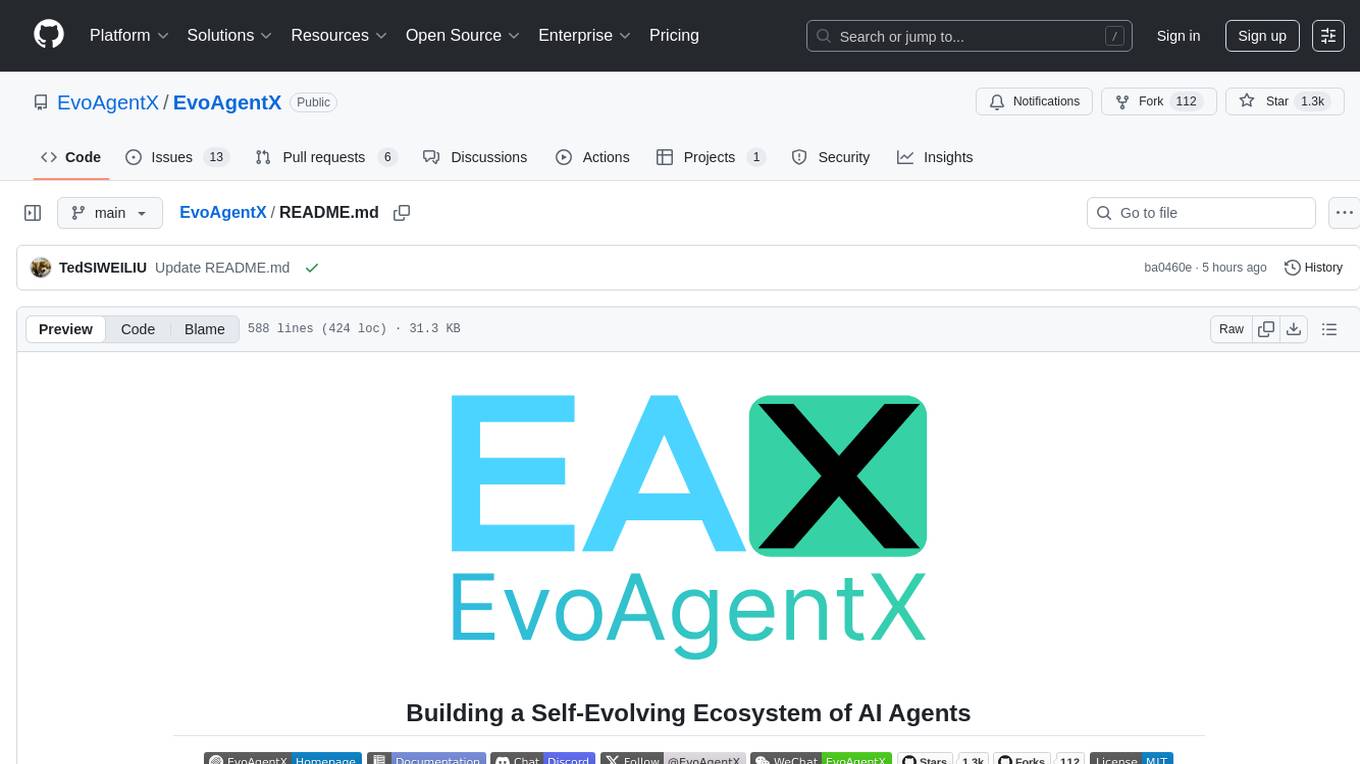
EvoAgentX
EvoAgentX is an open-source framework for building, evaluating, and evolving LLM-based agents or agentic workflows in an automated, modular, and goal-driven manner. It enables developers and researchers to move beyond static prompt chaining or manual workflow orchestration by introducing a self-evolving agent ecosystem. The framework includes features such as agent workflow autoconstruction, built-in evaluation, self-evolution engine, plug-and-play compatibility, comprehensive built-in tools, memory module support, and human-in-the-loop interactions.
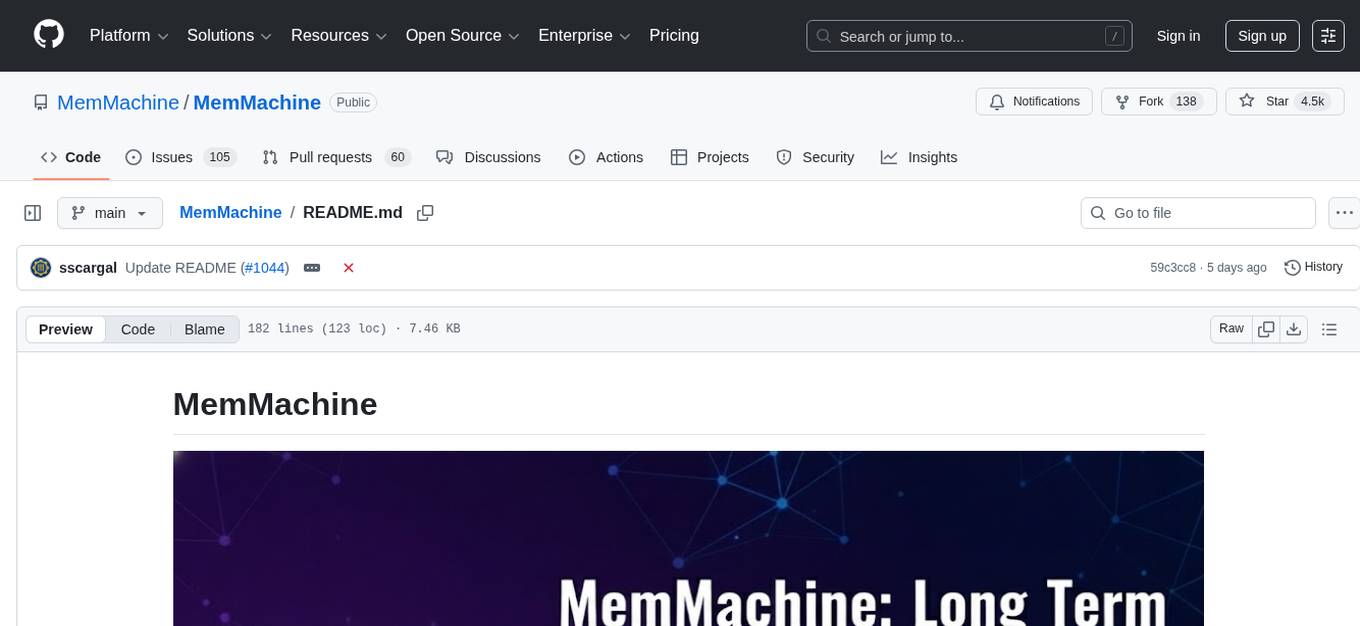
MemMachine
MemMachine is an open-source long-term memory layer designed for AI agents and LLM-powered applications. It enables AI to learn, store, and recall information from past sessions, transforming stateless chatbots into personalized, context-aware assistants. With capabilities like episodic memory, profile memory, working memory, and agent memory persistence, MemMachine offers a developer-friendly API, flexible storage options, and seamless integration with various AI frameworks. It is suitable for developers, researchers, and teams needing persistent, cross-session memory for their LLM applications.
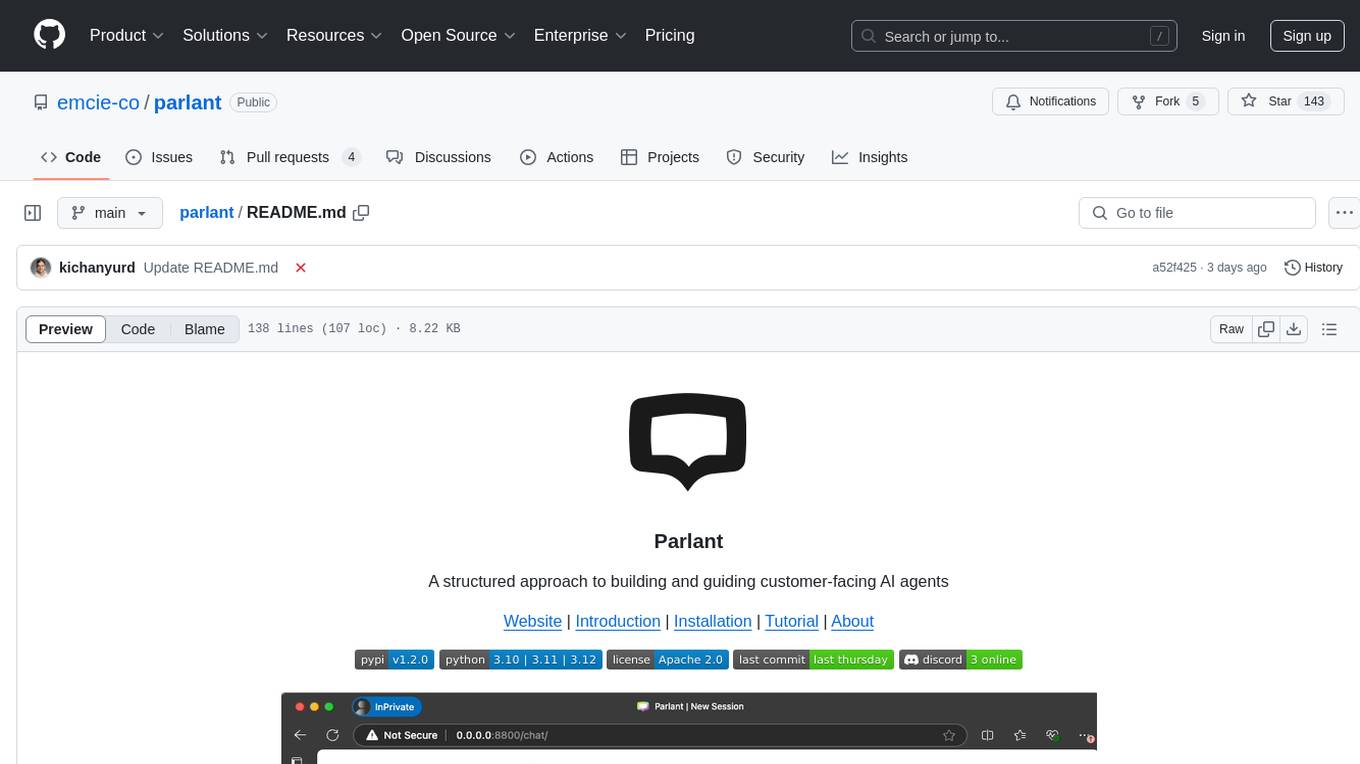
parlant
Parlant is a structured approach to building and guiding customer-facing AI agents. It allows developers to create and manage robust AI agents, providing specific feedback on agent behavior and helping understand user intentions better. With features like guidelines, glossary, coherence checks, dynamic context, and guided tool use, Parlant offers control over agent responses and behavior. Developer-friendly aspects include instant changes, Git integration, clean architecture, and type safety. It enables confident deployment with scalability, effective debugging, and validation before deployment. Parlant works with major LLM providers and offers client SDKs for Python and TypeScript. The tool facilitates natural customer interactions through asynchronous communication and provides a chat UI for testing new behaviors before deployment.
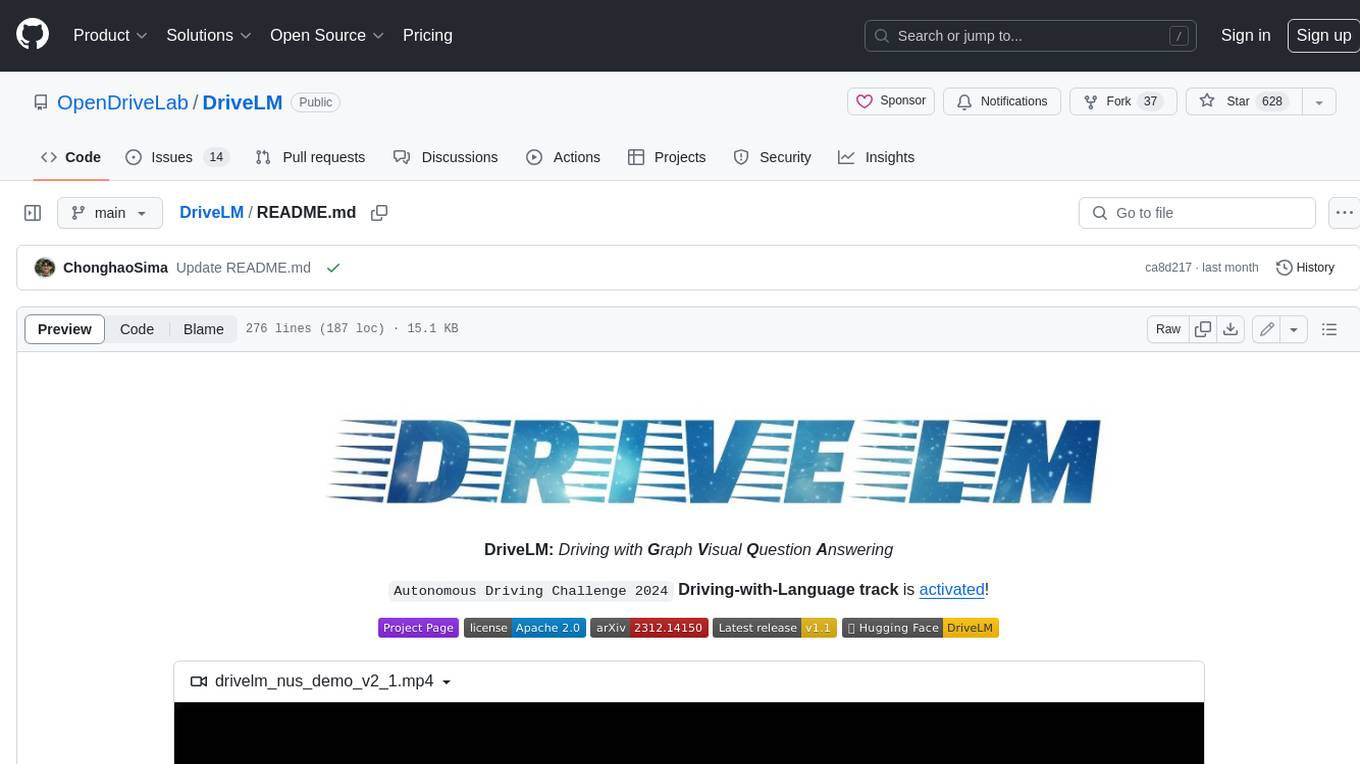
DriveLM
DriveLM is a multimodal AI model that enables autonomous driving by combining computer vision and natural language processing. It is designed to understand and respond to complex driving scenarios using visual and textual information. DriveLM can perform various tasks related to driving, such as object detection, lane keeping, and decision-making. It is trained on a massive dataset of images and text, which allows it to learn the relationships between visual cues and driving actions. DriveLM is a powerful tool that can help to improve the safety and efficiency of autonomous vehicles.
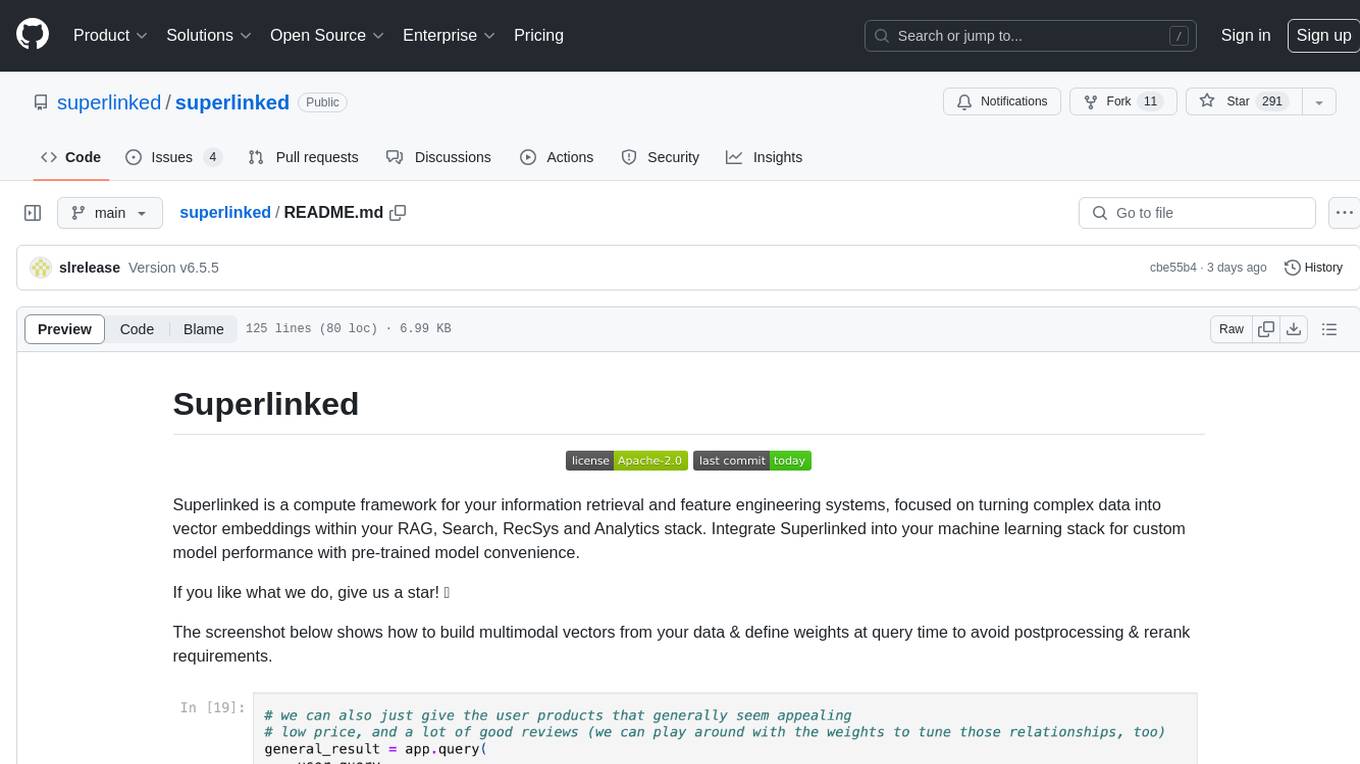
superlinked
Superlinked is a compute framework for information retrieval and feature engineering systems, focusing on converting complex data into vector embeddings for RAG, Search, RecSys, and Analytics stack integration. It enables custom model performance in machine learning with pre-trained model convenience. The tool allows users to build multimodal vectors, define weights at query time, and avoid postprocessing & rerank requirements. Users can explore the computational model through simple scripts and python notebooks, with a future release planned for production usage with built-in data infra and vector database integrations.

GPTSwarm
GPTSwarm is a graph-based framework for LLM-based agents that enables the creation of LLM-based agents from graphs and facilitates the customized and automatic self-organization of agent swarms with self-improvement capabilities. The library includes components for domain-specific operations, graph-related functions, LLM backend selection, memory management, and optimization algorithms to enhance agent performance and swarm efficiency. Users can quickly run predefined swarms or utilize tools like the file analyzer. GPTSwarm supports local LM inference via LM Studio, allowing users to run with a local LLM model. The framework has been accepted by ICML2024 and offers advanced features for experimentation and customization.
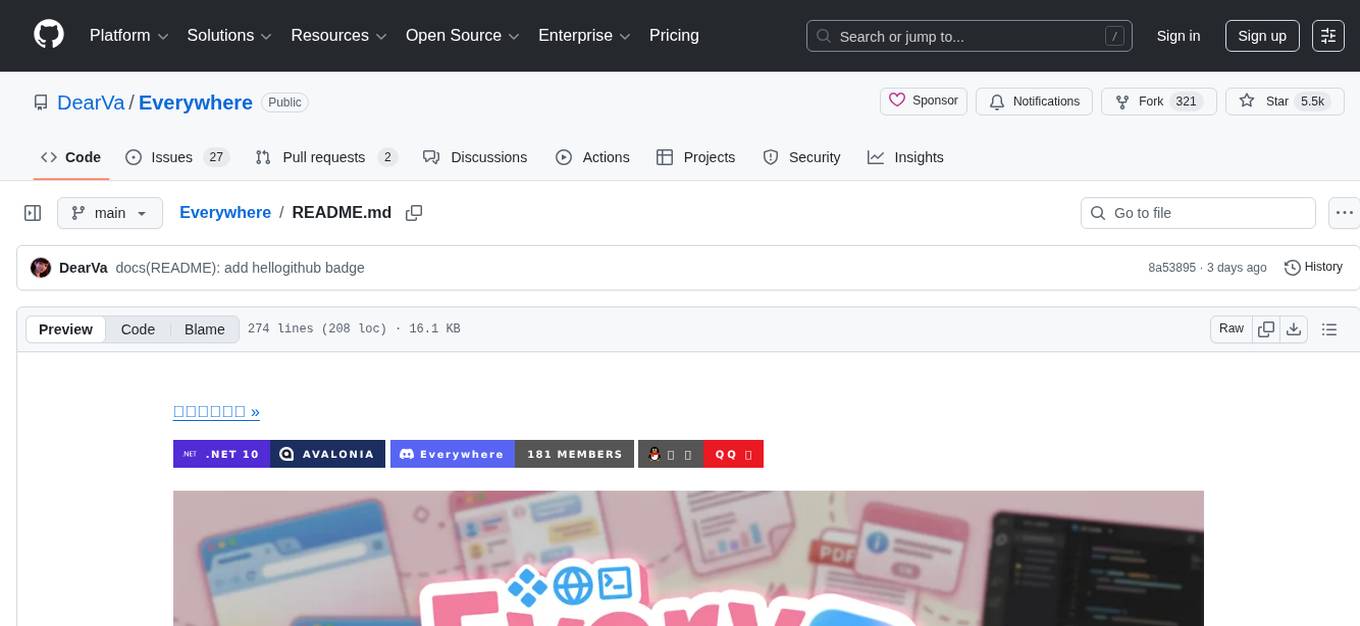
Everywhere
Everywhere is an interactive AI assistant with context-aware capabilities, featuring a sleek, modern UI and powerful integrated functionality. It instantly perceives and understands anything on your screen, providing seamless AI assistant support without the need for screenshots or app switching. The tool offers troubleshooting expertise, quick web summarization, instant translation, and email draft assistance. It supports LLM from various providers, integrates with web browsers, file systems, terminals, and more, and provides an interactive experience with a modern UI, context-aware invocation, keyboard shortcuts, and markdown rendering. Everywhere is available on Windows and macOS, with Linux support coming soon. Language support includes Simplified Chinese, English, German, Spanish, French, Italian, Japanese, Korean, Russian, Turkish, Traditional Chinese, and Traditional Chinese (Hong Kong).

mlflow
MLflow is a platform to streamline machine learning development, including tracking experiments, packaging code into reproducible runs, and sharing and deploying models. MLflow offers a set of lightweight APIs that can be used with any existing machine learning application or library (TensorFlow, PyTorch, XGBoost, etc), wherever you currently run ML code (e.g. in notebooks, standalone applications or the cloud). MLflow's current components are:
* `MLflow Tracking
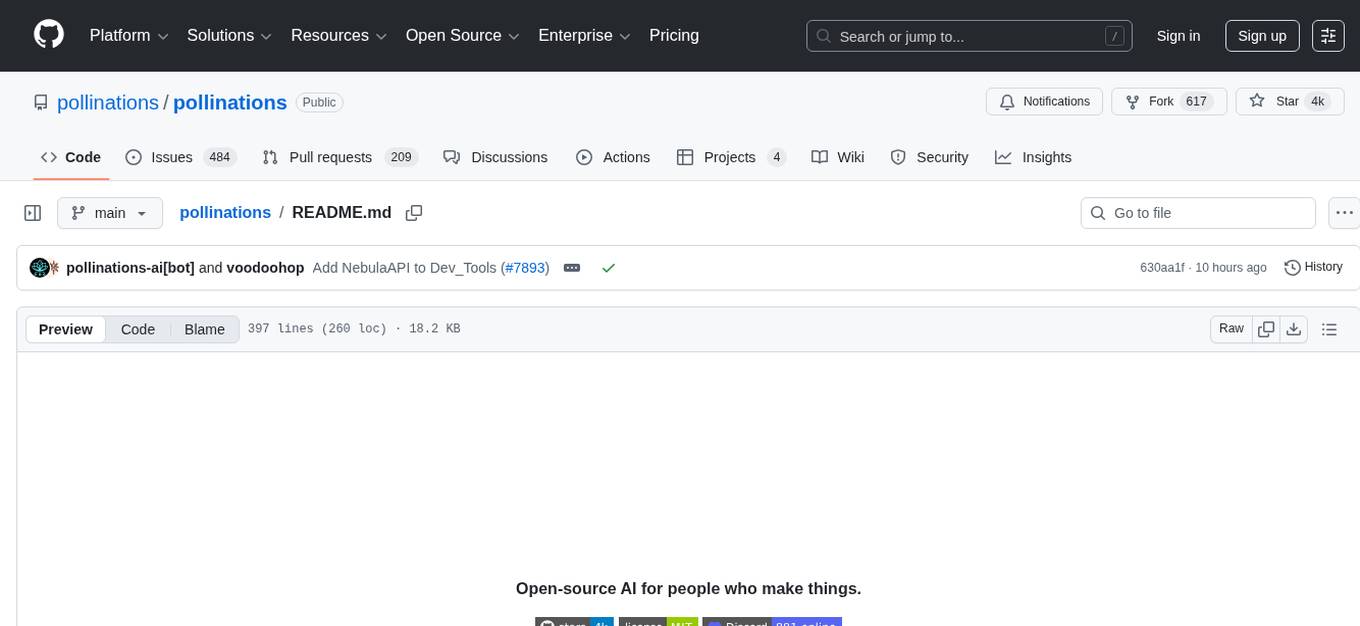
pollinations
pollinations.ai is an open-source generative AI platform based in Berlin, empowering community projects with accessible text, image, video, and audio generation APIs. It offers a unified API endpoint for various AI generation needs, including text, images, audio, and video. The platform provides features like image generation using models such as Flux, GPT Image, Seedream, and Kontext, video generation with Seedance and Veo, and audio generation with text-to-speech and speech-to-text capabilities. Users can access the platform through a web interface or API, and authentication is managed through API keys. The platform is community-driven, transparent, and ethical, aiming to make AI technology open, accessible, and interconnected while fostering innovation and responsible development.
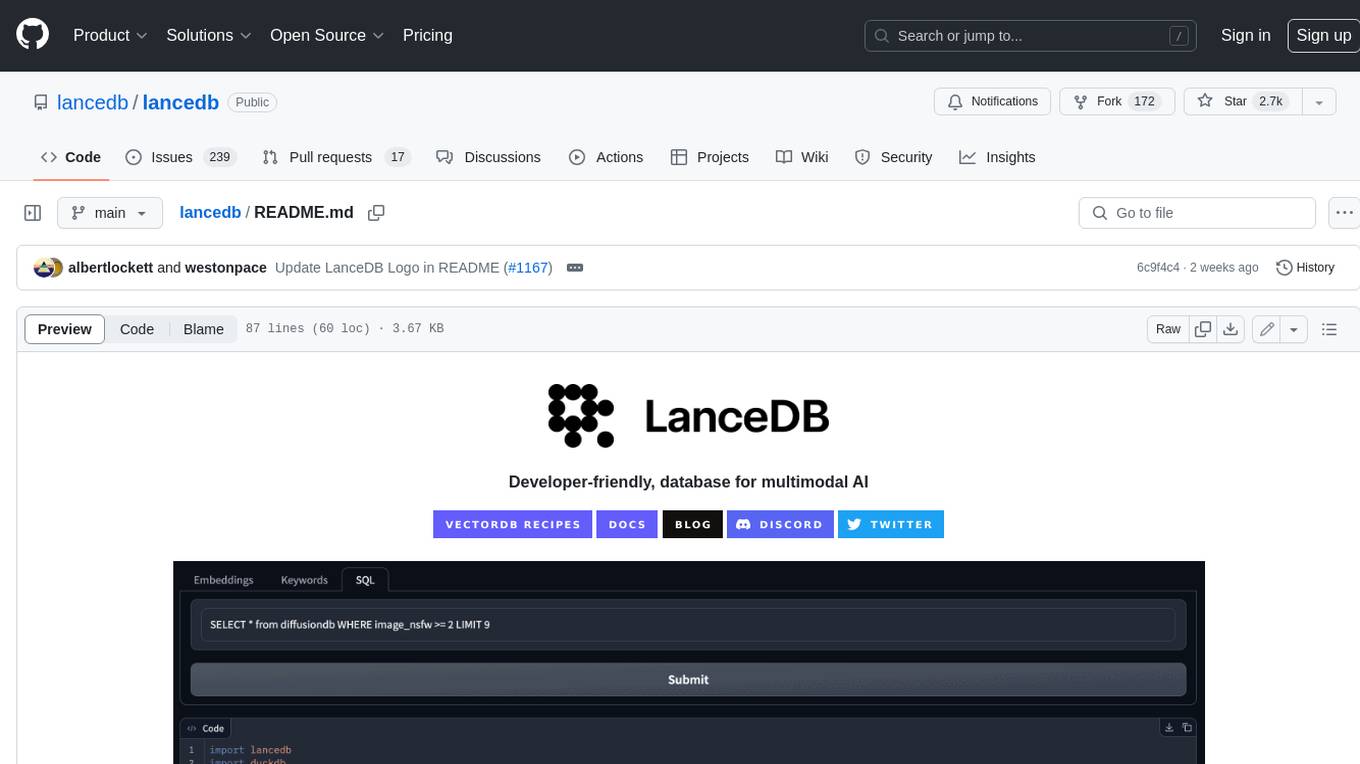
lancedb
LanceDB is an open-source database for vector-search built with persistent storage, which greatly simplifies retrieval, filtering, and management of embeddings. The key features of LanceDB include: Production-scale vector search with no servers to manage. Store, query, and filter vectors, metadata, and multi-modal data (text, images, videos, point clouds, and more). Support for vector similarity search, full-text search, and SQL. Native Python and Javascript/Typescript support. Zero-copy, automatic versioning, manage versions of your data without needing extra infrastructure. GPU support in building vector index(*). Ecosystem integrations with LangChain 🦜️🔗, LlamaIndex 🦙, Apache-Arrow, Pandas, Polars, DuckDB, and more on the way. LanceDB's core is written in Rust 🦀 and is built using Lance, an open-source columnar format designed for performant ML workloads.

anything-llm
AnythingLLM is a full-stack application that enables you to turn any document, resource, or piece of content into context that any LLM can use as references during chatting. This application allows you to pick and choose which LLM or Vector Database you want to use as well as supporting multi-user management and permissions.
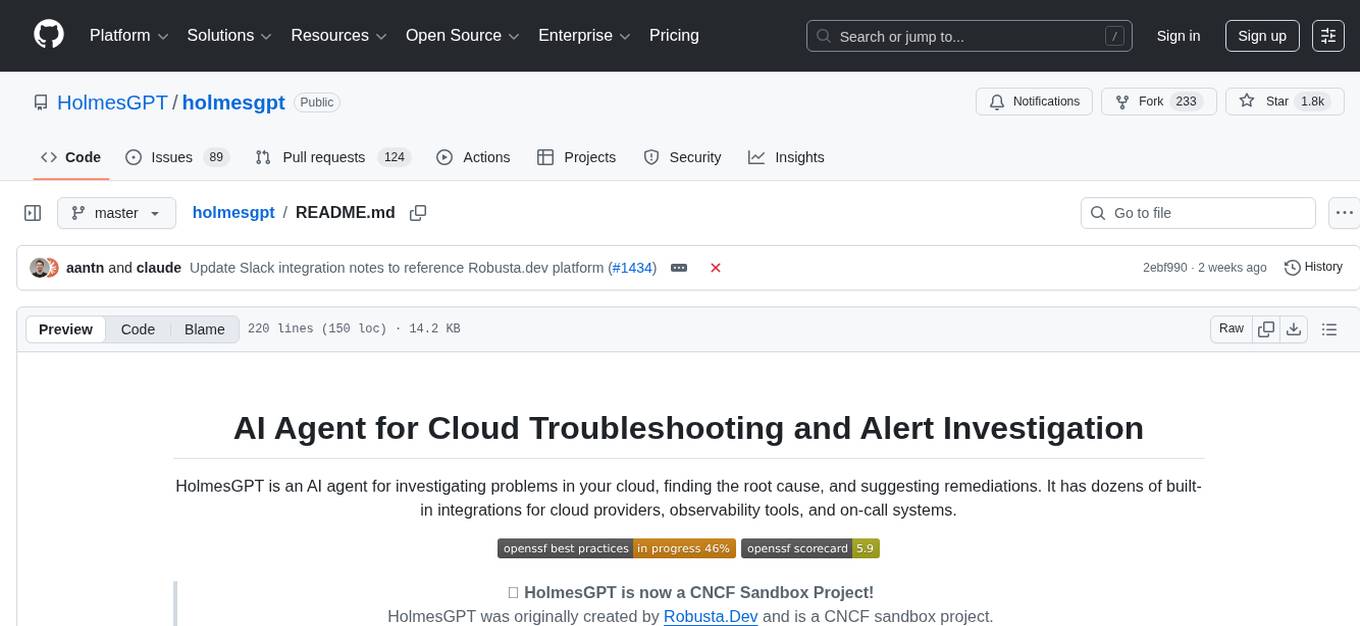
holmesgpt
HolmesGPT is an AI agent designed for troubleshooting and investigating issues in cloud environments. It utilizes AI models to analyze data from various sources, identify root causes, and provide remediation suggestions. The tool offers integrations with popular cloud providers, observability tools, and on-call systems, enabling users to streamline the troubleshooting process. HolmesGPT can automate the investigation of alerts and tickets from external systems, providing insights back to the source or communication platforms like Slack. It supports end-to-end automation and offers a CLI for interacting with the AI agent. Users can customize HolmesGPT by adding custom data sources and runbooks to enhance investigation capabilities. The tool prioritizes data privacy, ensuring read-only access and respecting RBAC permissions. HolmesGPT is a CNCF Sandbox Project and is distributed under the Apache 2.0 License.
For similar tasks
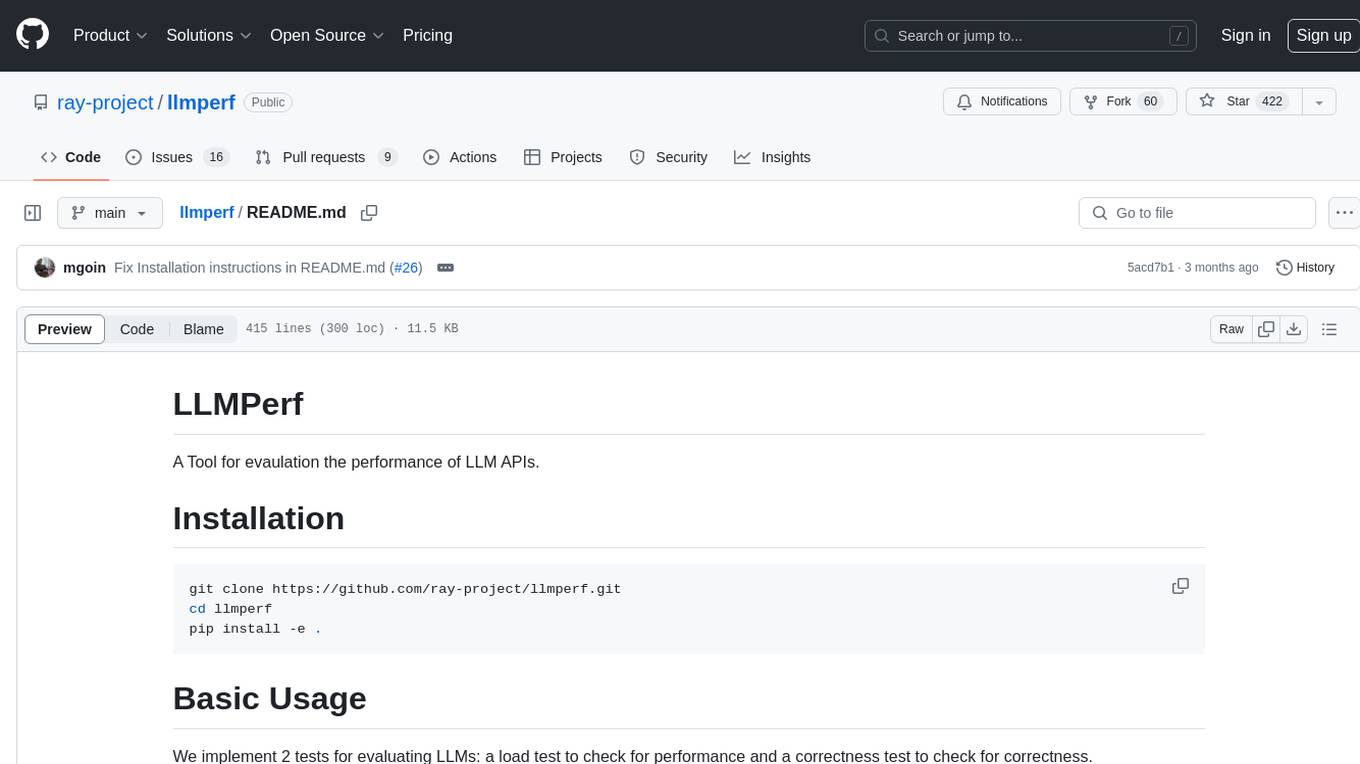
llmperf
LLMPerf is a tool designed for evaluating the performance of Language Model APIs. It provides functionalities for conducting load tests to measure inter-token latency and generation throughput, as well as correctness tests to verify the responses. The tool supports various LLM APIs including OpenAI, Anthropic, TogetherAI, Hugging Face, LiteLLM, Vertex AI, and SageMaker. Users can set different parameters for the tests and analyze the results to assess the performance of the LLM APIs. LLMPerf aims to standardize prompts across different APIs and provide consistent evaluation metrics for comparison.

open-health
OpenHealth is an AI health assistant that helps users manage their health data by leveraging AI and personal health information. It allows users to consolidate health data, parse it smartly, and engage in contextual conversations with GPT-powered AI. The tool supports various data sources like blood test results, health checkup data, personal physical information, family history, and symptoms. OpenHealth aims to empower users to take control of their health by combining data and intelligence for actionable health management.
For similar jobs

open-health
OpenHealth is an AI health assistant that helps users manage their health data by leveraging AI and personal health information. It allows users to consolidate health data, parse it smartly, and engage in contextual conversations with GPT-powered AI. The tool supports various data sources like blood test results, health checkup data, personal physical information, family history, and symptoms. OpenHealth aims to empower users to take control of their health by combining data and intelligence for actionable health management.
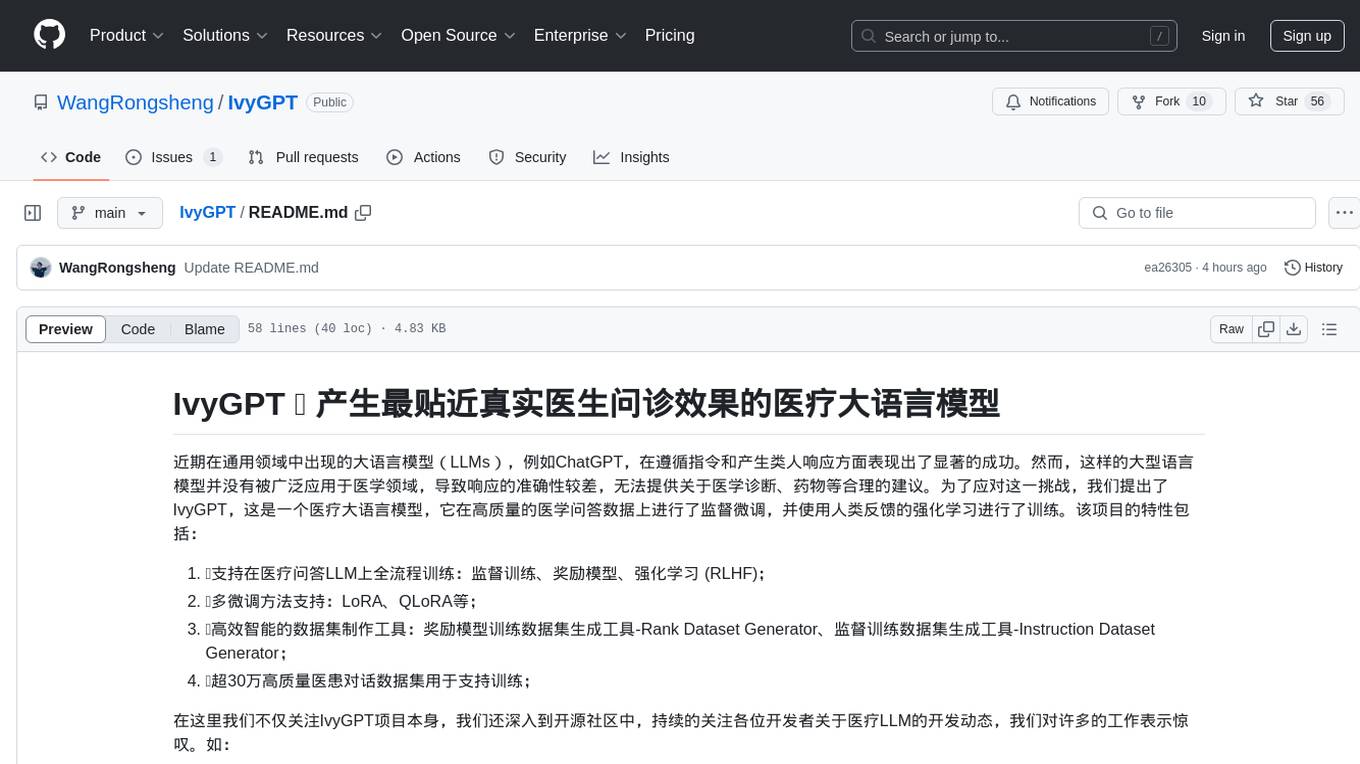
IvyGPT
IvyGPT is a medical large language model that aims to generate the most realistic doctor consultation effects. It has been fine-tuned on high-quality medical Q&A data and trained using human feedback reinforcement learning. The project features full-process training on medical Q&A LLM, multiple fine-tuning methods support, efficient dataset creation tools, and a dataset of over 300,000 high-quality doctor-patient dialogues for training.







